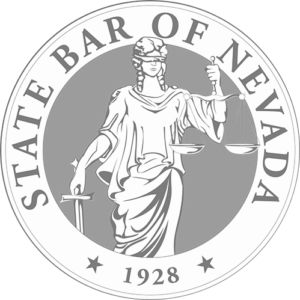Explore detailed reciprocity information for each state:
Requirements to qualify for bar reciprocity
To get reciprocity in a new state, attorneys must typically apply for admission to the bar of that state. Each state has its own rules and requirements for admission, which may include:
- passing an exam.
- completing a certain amount of continuing legal education (CLE) credits.
- submitting to a background check.
Some states have reciprocity agreements with other states, which allow attorneys who are licensed in those states to be admitted to the bar without having to take the exam or complete additional CLE requirements. This is often contingent on the lawyer having practiced law for a minimum amount of time. The state may also require a degree from an ABA accredited law school.
Alternatively, to get reciprocity, attorneys may need to apply for admission to the bar, register as in-house counsel, transfer their exam scores through the uniform bar exam, or qualify for a military spouse exemption.
Bar reciprocity by state
This list outlines where you can go based on which state you're admitted to practice law in. If there’s a state you’d like to transfer to, please check for the appropriate context and reciprocity requirements.
Alabama
Alaska
Arizona
Arkansas
California
Colorado
Connecticut
Delaware
District of Columbia
Florida
Georgia
Hawaii
Idaho
Illinois
Indiana
Iowa
Kansas
Kentucky
Louisiana
Maine
Maryland
Massachusetts
Michigan
Minnesota
Mississippi
Missouri
Montana
Nebraska
Nevada
New Hampshire
New Jersey
New Mexico
New York
North Carolina
North Dakota
Ohio
Oklahoma
Oregon
Pennsylvania
Puerto Rico
Rhode Island
South Carolina
South Dakota
Tennessee
Texas
Utah
Vermont
Virgin Islands
Virginia
Washington
West Virginia
Wisconsin
Alternatives to bar reciprocity
Even if there isn't formal reciprocity between two states, there may be other ways you can practice law in other states.
Waiver on motion, or comity
Some states allow out-of-state attorneys to transfer to the state’s bar without taking the state’s bar exam, even if there’s no reciprocity agreement in place between the two states. These states typically have a process called “waiver on motion,” “waiver,” or “comity” which allows attorneys who are already licensed to practice law in another state to be admitted to the bar of the new state without taking the bar exam.
To qualify for admission through waiver on motion, an attorney typically must meet certain requirements, such as:
- Being a U.S. citizen or permanent resident.
- Being admitted to practice law in another state, U.S. territory, or commonwealth.
- Being in good standing in all states where the attorney is admitted to practice.
- Having a certain amount of legal experience, typically at least a few years.
- Meeting the character and fitness requirements for admission to the bar in the new state.
It’s worth noting that the requirements for admission through waiver on motion vary from state to state. Therefore, it’s important to verify the specific requirements in the state where the attorney is seeking admission. Additionally, even if an attorney qualifies for admission through waiver on motion, the attorney may still have to complete other requirements, such as paying fees, completing criminal background checks, and completing a course on the rules of professional conduct in the new state.
In-house counsel registration
In-house counsel registration is another option for attorneys who want to practice law in a different state. In-house counsel registration allows attorneys who work as in-house counsel for a company to practice law on behalf of that company in a state where they are not licensed.
To qualify for in-house counsel registration, attorneys must typically be employed full-time as in-house counsel for a company and have a certain amount of legal experience.
The uniform bar exam
The Uniform Bar Exam (UBE) is a standardized exam administered in several states. This exam is designed to test the knowledge and skills necessary to practice law. It tests knowledge of general legal principles and subjects that are common to all states, rather than the specific laws of a particular state.
The UBE is designed to make it easier for attorneys to practice law in multiple states, as they can take the UBE in one state and have their scores transferred to another state that accepts the UBE. The UBE consists of the Multistate Bar Exam (MBE), which is a multiple-choice exam that tests general legal principles, and the Multistate Essay Exam (MEE), which is a written exam that tests the ability to analyze legal issues and write clearly and concisely. The UBE also includes the Multistate Performance Test (MPT), which is a skills test that assesses the ability to complete tasks that are typically performed by lawyers.
Attorneys who pass the UBE can apply for admission to the bar in any state that recognizes the UBE. Some states also allow attorneys who have passed the bar exam in another state to transfer their exam scores to the new state, as long as they meet certain requirements. Those requirements include a minimum score that varies by state, and may also include specific CLE or state-specific training.
Military spouse exemptions
Military spouse exemptions may also be available for attorneys who want to practice law in a different state. Military spouse exemptions allow attorneys who are married to a military member to practice law in a state where they are not licensed, as long as their spouse is stationed in that state.
To qualify for a military spouse exemption, attorneys must typically be in good standing with the bar in their home state and have a certain amount of legal experience. Most states require a military spouse to register with the local attorney regulator before they can begin practicing there.
The Military Spouse J.D. Network (MSJDN) has been instrumental in lobbying and implementing military spouse exemptions state by state.
Exceptions for pro bono work
Finally, many states have exceptions to the unauthorized practice of law (UPL) prohibitions for pro bono work, which is legal work that is provided free of charge to low-income or underserved individuals or organizations. These exceptions typically allow attorneys who are licensed in other states to provide pro bono legal services on a limited basis, without obtaining a license in the state where the services are provided.
The purpose of these exceptions is to allow attorneys to provide needed legal assistance to underserved populations, while still protecting the public from the risks associated with UPL. You may still have to register with the state’s lawyer regulators even when doing pro bono work.
Approved by 100+ bar associations & law societies, including all 50 state bar associations in the United States
Clio—Your trusted partner
With Clio, you can take your practice with you, wherever you need to practice law.





